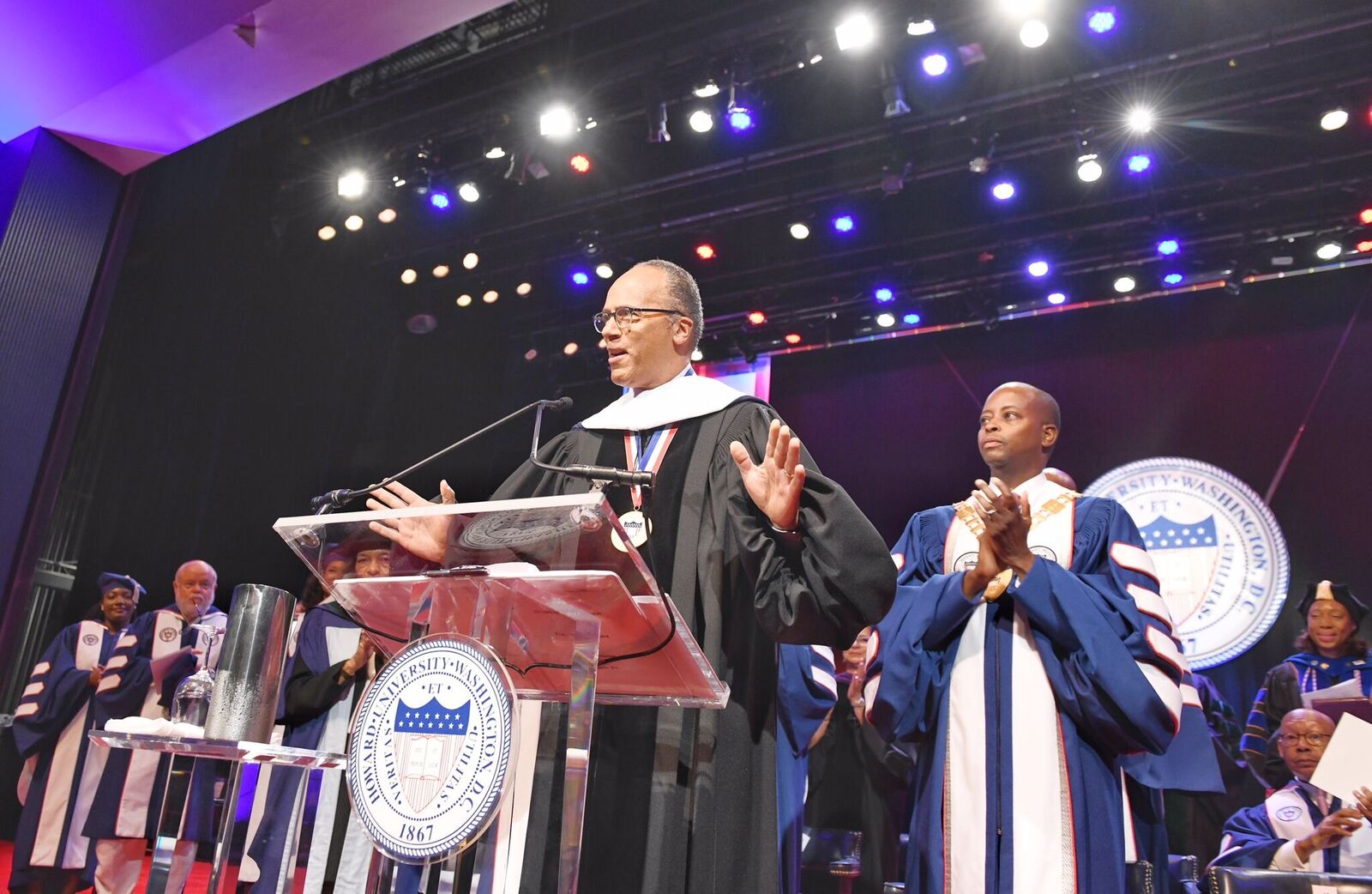A 22-year-old African American man blasted music while driving up to M Street in Georgetown to begin his shift as a sales associate at Up Against the Wall, an urban clothing store. Wearing clothes that resemble what he sells, Amir Stewart rhythmically bobbed his head.
“Sex and money. Sex and money. Girls just want sex and money… She’s cold, cold, cold. But she’s making me hot, hot, hot,” are the lyrics coming out of his speakers.
What is Stewart listening to?
Paul Oakenfold, a techno musician that Stewart describes as “happy hardcore rock music.”
It’s not what anyone bound by gross stereotypes would expect based on Stewart’s outward appearance. Rock and rollers have their tight-shirt-wearing, Mohawk headed white fans. Country music lovers are white and boot footed. And of course, the hip-hop community is a bunch of young, African Americans in oversized clothes and sneakers.
Stewart’s music preference shows that these stereotypes – as are so many other stereotypes– sometimes are grossly misleading.
Stewart says that he isn’t afraid to let everyone know and hear that he is a true techno fan, Whether they are new or old friends, the passengers in his car are going to listen to techno and trance stars. ATB, DJ Tiesto, DJ Taq will all ring out from the speakers.
“Music says something about you. So when someone hears a certain song, group, or style of music, they learn a little about you.” Stewart said. “Changing the station would be like lying.”
Stewart says that most of his friends don’t appreciate the music he likes because they refuse to be diverse.
“I believe many are just not open-minded. And if they do give it [techno] a chance, it’s a one-time only deal. They listen to one techno song, hate it, and then associate every techno song after that with that first time,” said Stewart.
Towson University student Nicole Miles is another fan of music outside the stereotype. Miles, 21, and African American, is a huge fan of rock bands Aerosmith, Coldplay, and the Goo Goo Dolls.
“One thing I’ve noticed from going to a predominately white school is that the African Americans [that I see and know here] are close minded when it comes to music. They are so conditioned to hearing about the same old things in rap music that they don’t want to try anything else and don’t want to be exposed to anything different,” said Miles. “If you listen to a Coldplay album, they might be singing the same message that Usher is singing about, but you wouldn’t know that unless you gave Coldplay a chance.”
Senior Georgetown University student Jeff Wright is a fan of all genres. Hip-Hop is his definite favorite, but rock and roll has a place in his heart. Because he does not have any close friends that share his interests, he keeps his love for rock and roll to himself.
Wright, an African American, would be more eager to blast his music if his friends were more receptive. Citing Radiohead’s Kid A as his favorite rock album, he has a theory about why most of his friends would prefer that he turned that music off.
“I would say that naturally black people like music with a beat and some soul to it. It’s in our veins. With black people a CD with a bunch of noise that isn’t correlated with a heavy beat or melody doesn’t make sense,” said Wright. “By no means is that meant to be stereotypical. If you look at the tops songs on the Billboard charts, none of them are jazz or intricate music. They are mostly simple, bass-driven catchy songs.”
Wright also believes that the issues addressed in white music aren’t ones that blacks can identify with.
“They are talking about angst and white problems. We don’t want to hear that stuff. And I usually don’t either, but Radiohead is much more dense. They talk about more universal problems that more people can relate to. And that makes them a group that I can loosely identify with.”


